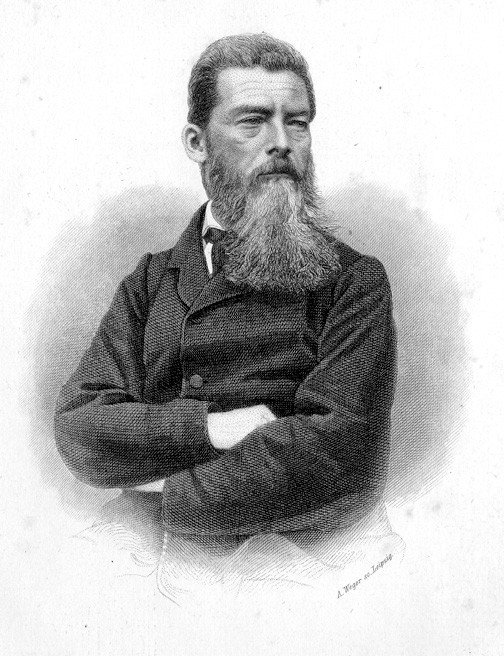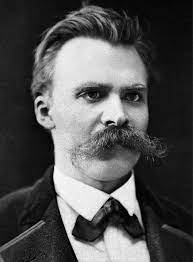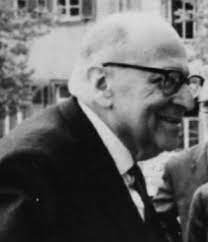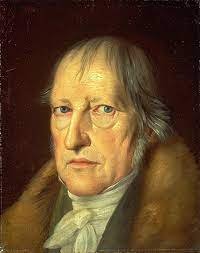
Ludwig Feuerbach, en su “Esencia del Cristianismo” explica muy bien como la inteligencia de algunos seres humanos se encuentra ubicada en un más allá. La razón fundamental que encuentro en dicha explicación para que esto sea así, es que la inteligencia es aquella que nos indica quiénes somos y lo errores que cometemos, algunos para evitar semejante pena colocan, como indique anteriormente la inteligencia en un mas allá, es decir objetivan la inteligencia.
Siendo la inteligencia el medio de emancipación del hombre, no es casualidad que nuestra sociedad, así como está organizada erige en medio de todo eso que llamamos cultura toda una serie de mecanismos que apuntan o tienen como objetivo sembrar la vergüenza sobre las masas. El primero de ellos es el propio Estado, configurado bajo el mandato de un presidente, este individuo que es la cara más visible del estado, se erige como una especie de superhombre. Hay muchos hombres y mujeres detrás del Estado, pero el estado para sembrar esta exaltación del presidente se muestra como una sola cara visible, o al menos como la mas relevante. Sin embargo la figura de un presidente es la que menos enarbola el problema aquí planteado, porque a ciencia cierta se requiere algún tipo de habilidad excepcional para ser presidente.
Como para sus efectos la figura del presidente no es del todo funcional para que tal dispositivo de bochorno cultural cumpla su objetivo, los sistemas de dominación promuevan lo que llamamos cultura popular. La cultura popular no es más que la propagación de un conjunto de Ídolos de diversa índole ya sea desde la “música”, el deporte, la actuación. En algunas ocasiones los efectos de la propaganda son tan enormes que ni siquiera se requiere que estos ídolos tengan algún tipo de talento.
Esto queda por sentado aquí para cumplir una función Filosófica, que es la derrumbar mitos. Si uno cree que estas personas erigidas como Ídolos reciben una fuerte cantidad de dinero por hacer lo que hacen, uno vive engañado. Eso pudiera suponer que uno vive en una sociedad completamente infantilizada. No es así, estos Ídolos cumplen una función para cumplir objetivos de un razonamiento Subjetivo o como llama Max Horkheimer razonamiento intrumental, es decir de dominación imperante en nuestra sociedad. El objetivo es regular, administrar la inteligencia de las masas. Un individuo cualquiera, prende el televisor, se encuentra con todo esto y no le queda de otra que sentir pena, otros tienen la esperanza en convertirse en uno de esos ídolos y ahí es donde se refleja aquel pensamiento de Nietzsche “La Esperanza prolonga el tormento de los hombres”. Una vez que las masas sienten pena por no ser uno de estos ídolos, objetivan su inteligencia y se convierten en esos obreros deshumanizados, robotizados que el sistema necesita y hay es donde el sistema recupera la inversión que ha hecho en estos Ídolos. Se necesita que una persona suprima su inteligencia para no sentir la incomodidad que representa todo ese trabajo de máquina que tiene que realizar.

Si no siente pena, siente odio por la notable injusticia frente a él. El odio a su vez es otro factor psicológico que enajena la inteligencia. Bertrand Russell lo indica:”El amor es sabio, el odio es tonto”. La Filosofía propiamente dicha evidencia el correlato entre Amor y Saber. Claro esta relación a veces se pierde por que se define a la Filosofía como amor al saber, es decir se coloca a la sabiduría como objeto del amor. Esta definición de la filosofía como amor al saber parece un relicto del Escolasticismo. En la obra de Nietzsche “Mas alla del bien y el mal” escribe: “….la torpe insistencia con que (Los Filósofos) hasta ahora han solido acercase a la verdad eran medio inhábiles e ineptos para conquistar los favores precisamente de una Hembra?”
En tales circunstancias supongamos el efecto contrario, supongamos que un hombre ordinario, pobre, cualquiera en medio de la masa en vez de objetivar su inteligencia se le ocurre pensar. En primera instancia, el valor que se requiere, pensar en tales circunstancias es desafiar a todo un sistema masivo y sumamente poderoso de dominación donde mínimo lo que puede recibir como castigo es la exclusión de las masas, la soledad. Tal vez ahí se refleje ese pensamiento de Nietzsche “El valor de un hombre se mide por la cantidad de soledad que este es capaz de soportar”. No solo el valor en el sentido de valentía, si no el valor Filosófico cultural que pueda tener, en tales circunstancias no haría más que despertar el asombro y el asombro es uno de los principios de la Filosofía. Mas allá del asombro, de por si suscita un cuestionamiento, mas allá del cuestionamiento hay un indicador histórico, que apunta a la siguiente pregunta ¿Sera que los mecanismos de dominación se encuentran en crisis?. Tal vez simplemente me engaño y tales mecanismos de dominación no existen.

A primera vista lo aquí escrito parece una desfachatez, es decir primero se sostiene la tesis de un sistema de dominación tan eficaz que influye directamente e inevitablemente sobre la nuestra juventud, desde el momento en que prenden el televisor. Es casi imposible privar a los jóvenes del entretenimiento y mucho menos tratar de explicarles a corta edad las grandes cuestiones de la vida. Luego se sostiene el supuesto que en algún caso ese eficiente sistema de dominación fracasa en algún lugar.
Vamos a tratar de dilucidar si la primera tesis deriva en la segunda. Para eso vamos a utilizar una metáfora que usa Nietzsche en la frase “Mientras más crece el árbol, mas hunde sus raíces. Utilicemos a ese árbol como metáfora del sistema y diremos que si el sistema produce un fruto que no sirve y si ese fruto no sirve es porque el árbol fue sembrado en un suelo improductivo. Ese suelo que da fundamento a nuestro sistema, es el razonamiento instrumental. Para todo razonamiento instrumental gira en torno al interés propio, personal, por lo tanto aquel que razone instrumentalmente tendrá por ende una percepción despectiva del otro, siempre se coloca a la propia persona en relación con el otro, en una relación de ventaja. Las consecuencias de todo ello en una sociedad en donde el razonamiento instrumental impere, es una sociedad sumamente ofensiva desde todo punto de vista.

Que va a pasar que medio de toda esa ofensiva, seres humanos en medio de todo este embrollo tiene dos caminos el primero es sucumbir ante la patología y el segundo por el propio instintito de supervivencia hacer sucumbir las causas de su calamidad, que es el razonamiento subjetivo. Supongamos una ofensa verbal cualquiera, al entender que esa ofensa responde a razonamiento instrumental, se entiende por la tanto que dicha ofensa es arbitraria y que no dice nada del otro, sino que dice lo que el emisor quiere que el otro sea. En ese entendimiento la ofensa pierde su efecto y el razonamiento instrumental caduca. Esto obviamente va a desembocar en un pensamiento objetivo.
Es decir el hombre pobre que es aquel que está más expuesto a la ofensiva generalizada que se vive en la sociedad por encontrarse inmerso en las masas populares, por simple instinto de supervivencia va a desarrollar un pensamiento objetivo. El pensamiento objetivo considera en la realidad en su plenitud porque este no va obviar, desentenderse o convertir en una alucinación invertida los elementos que no sean convenientes. Tal vez es esta sea una forma de explicar ese pensamiento Hegeliano en donde el esclavo es el que hace la cultura.
Ludwig Feuerbach, in his "Essence of Christianity" explains very well how the intelligence of some human beings is located in a beyond. The fundamental reason that I find in this explanation for this to be so, is that intelligence is that which tells us who we are and what mistakes we make, some to avoid such a penalty placed, as indicated above intelligence in a beyond, ie objectify intelligence.
Intelligence being the means of emancipation of man, it is not by chance that our society, as it is organized, erects in the midst of all that we call culture a whole series of mechanisms that aim or have as objective to sow shame on the masses. The first of them is the State itself, configured under the mandate of a president, this individual who is the most visible face of the state, stands as a kind of superman. There are many men and women behind the state, but the state to sow this exaltation of the president is shown as a single visible face, or at least as the most relevant. However, the figure of a president is the one that least raises the problem raised here, because it certainly requires some kind of exceptional ability to be president.
As for its effects the figure of the president is not entirely functional for such a device of cultural embarrassment to fulfill its objective, the systems of domination promote what we call popular culture. Popular culture is nothing more than the propagation of a set of idols of various kinds, be it "music", sports or acting. Sometimes the effects of propaganda are so enormous that it is not even required that these idols have any kind of talent.
This is taken for granted here to fulfill a philosophical function, which is myth busting. If one believes that these people erected as Idols receive a large amount of money for doing what they do, one lives deceived. That could suppose that one lives in a completely infantilized society. It is not so, these Idols fulfill a function to fulfill objectives of a Subjective reasoning or as Max Horkheimer calls intrumental reasoning, that is to say of domination prevailing in our society. The objective is to regulate, to administer the intelligence of the masses. Any individual, turning on the TV, finds all this and has no choice but to feel sorry, others have the hope of becoming one of those idols and that is where Nietzsche's thought "Hope prolongs the torment of men" is reflected. Once the masses feel sorry for not being one of these idols, they objectify their intelligence and become those dehumanized, robotized workers that the system needs and that is where the system recovers the investment it has made in these Idols. It is necessary for a person to suppress his intelligence in order not to feel the discomfort of all the machine work he has to do.
If he does not feel pity, he feels hatred for the remarkable injustice done to him. Hatred in turn is another psychological factor that alienates intelligence. Bertrand Russell points out: "Love is wise, hate is foolish". Philosophy itself evidences the correlation between Love and Knowledge. Of course, this relationship is sometimes lost because Philosophy is defined as love of knowledge, that is to say, wisdom is placed as the object of love. This definition of philosophy as love of knowledge seems to be a relic of Scholasticism. In Nietzsche's "Beyond Good and Evil" he writes: ".... the clumsy insistence with which (Philosophers) have hitherto been wont to approach the truth were half-unskilled and inept to conquer the favors of precisely one Female?"
In such circumstances let us suppose the opposite effect, let us suppose that an ordinary, poor, any man in the midst of the mass instead of objectifying his intelligence it occurs to him to think. In the first instance, the courage required, to think in such circumstances is to challenge a whole massive and extremely powerful system of domination where the least he can receive as punishment is exclusion from the masses, loneliness. Perhaps this is where Nietzsche's thought is reflected: "The value of a man is measured by the amount of loneliness he is able to endure". Not only the value in the sense of courage, but the cultural philosophical value it may have, in such circumstances would only awaken amazement, and amazement is one of the principles of philosophy. Beyond the astonishment, which in itself raises a question, beyond the questioning there is a historical indicator, which points to the following question: Is it that the mechanisms of domination are in crisis? Perhaps I am simply deluded and such mechanisms of domination do not exist.
At first glance, what is written here seems to be a brazenness, that is to say, first the thesis of a system of domination so effective that it directly and inevitably influences our youth, from the moment they turn on the television, is sustained. It is almost impossible to deprive young people of entertainment, much less to try to explain to them at a young age the great questions of life. Then the assumption is held that in some case this efficient system of domination fails somewhere.
We will try to elucidate if the first thesis derives in the second one. For this we will use a metaphor used by Nietzsche in the phrase "The more the tree grows, the deeper it sinks its roots. Let us use that tree as a metaphor of the system and we will say that if the system produces a fruit that does not serve and if that fruit does not serve it is because the tree was planted in an unproductive soil. That soil that gives foundation to our system is instrumental reasoning. For all instrumental reasoning revolves around self-interest, personal interest, therefore he who reasons instrumentally will therefore have a derogatory perception of the other, always placing the person himself in relation to the other, in a relationship of advantage. The consequences of all this in a society where instrumental reasoning prevails is a society that is highly offensive from every point of view.
What is going to happen in the midst of all this offensive, human beings in the midst of all this mess have two ways, the first one is to succumb to pathology and the second one is to succumb to the causes of their calamity, which is subjective reasoning, by their own instinct of survival. Let us suppose any verbal offense, when understanding that this offense responds to instrumental reasoning, it is therefore understood that this offense is arbitrary and that it does not say anything about the other, but it says what the sender wants the other to be. In this understanding the offense loses its effect and the instrumental reasoning lapses. This will obviously lead to objective thinking.
That is to say, the poor man, who is the one who is more exposed to the generalized offensive that is lived in society because he is immersed in the popular masses, by simple survival instinct will develop an objective thought. Objective thinking considers reality in its fullness because it will not ignore, disregard or turn into an inverted hallucination the elements that are not convenient. Perhaps this is a way of explaining that Hegelian thought in which the slave is the one who makes the culture.

Congratulations @masteralfonso! You have completed the following achievement on the Hive blockchain and have been rewarded with new badge(s):
Your next payout target is 50 HP.
The unit is Hive Power equivalent because post and comment rewards can be split into HP and HBD
You can view your badges on your board and compare yourself to others in the Ranking
If you no longer want to receive notifications, reply to this comment with the word
STOPCheck out the last post from @hivebuzz:
Support the HiveBuzz project. Vote for our proposal!